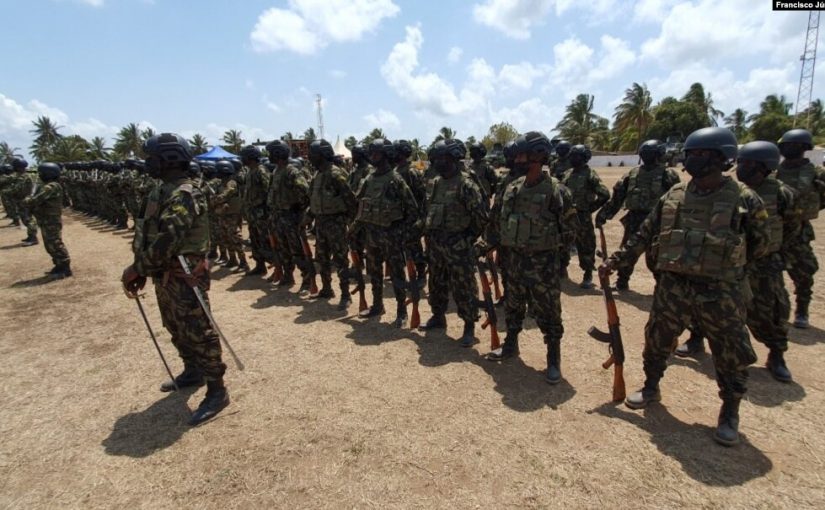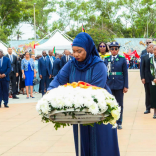Peace must be built by all Mozambicans
Mozambique: Young people divided by extension of mandatory military service

FILE - Celebration of the Day of the Armed Forces and Defence of Mozambique in Pemba, September 25, 2021 [File photo: VOA Português]
- The law extending military service from two to five years was approved by only 170 votes of the Frelimo majority in favour.
This Thursday (14-12), the Mozambican parliament approved the legislative review that extends compulsory military service from two to five years, but the measure continues to divide the opinion of young people due to the fact that military service is not professional.
Speaking to Voice of America, many young people say that the five years would only be beneficial if there were government guarantees for those conscripted to remain in the military ranks.
Sousa Vitorino, conscripted this year for mandatory military service in Chimoio, capital of Manica, was disappointed by the extension.
“There is a lot of time in these five years, the two years were good. Imagine being called up to serve five years while you already have a wife, it would be very difficult, and worse when there is no guarantee of remaining in the ranks,” he says.
Another young citizen, Mouzinho dos Remédios, believes that extending the time for completing mandatory military service for young people who have a “no occupation” is positive, but even so he argues that their ability to stay on after mandatory military service should be guaranteed.
The review of the Military Service Law was taken to the Assembly of the Republic by the government, which claims the need to retain military personnel in the armed forces, but saw 43 votes against from Renamo and the MDM opposition parties.
In the statement after the final vote, the Frelimo bench defended the position claiming that “it will create conditions to make the military institution more robust”, and “guarantee the retention and professionalisation of the military”, in addition to “providing greater dynamism in the armed forces.”
The law and the poor
However, Mozambican political analysts note that the increase in the length of military service fails to guarantee the professionalisation of young people who enlist in the military ranks, or ensure their social integration after completion.
Sande Carmona argues that five years of military service will only marginalise young people, who will be “trained and equipped” for combat and then abandoned to their fate, without any guarantee from the government as to their future.
“The youngster comes back from the army to start from scratch. Five years is already an aberration for the young person: this will only serve to delay the youth’s life, because the young person enters there at the age of 18 and only leaves at the age of 23 and time has already passed,” Carmona observes.
This political analyst adds that “the five years could be used for the youngster to go to college, but no, he/she leaves as he/she entered with only knowledge on how to handle weapons, only with the suffering of training, and it ends there, there is no responsibility on the part of the government itself”.
Carmona also notes that the law was approved in the interest of the government and not of young people, and highlighted that young people from poor families will be more affected by the law than the children of government elites.
“Don’t make laws for others, these laws must be made for all of us, they (the elites) have to also allow their children to participate in mandatory military service. I think that if that were the case they could not pass this law which extends it from two to five years. This only serves to criminalise the young person, who completes mandatory military service and returns with no professional qualifications,” the former parliamentarian maintains.
Political analyst Martinho Marcos also thinks the law should have been debated with a sympathetic eye towards youth, because the two years of mandatory military service are already a martyrdom for young people who returned without guarantee of integration into society.
“Parliament itself should have at least minimal consideration for its own youth in Mozambique and realise that they deserve attention. Young people must leave the military ranks with some guarantee for their insertion into society and professional life,” he argues.












Leave a Reply
Be the First to Comment!
You must be logged in to post a comment.
You must be logged in to post a comment.